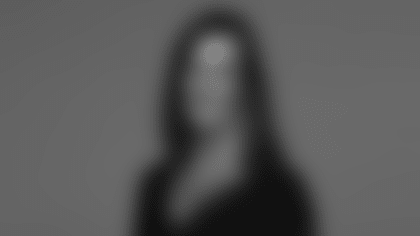By: Lindsey Young
Parry Nickerson still remembers his parents driving him and his three siblings away from their childhood home.
At the time, Parry didn't quite understand the magnitude of the evacuation. His 10-year-old mind assumed they'd take a brief trip – maybe more like a vacation – and return in a couple days to the New Orleans house he'd grown up in.
Hurricane Katrina had other ideas, though.
The Category 5 tropical storm blew in from the Atlantic Ocean in late August 2005, leaving a wide swath of devastation in its wake.
Katrina hit New Orleans the hardest, displacing the Nickersons and thousands of other families.
Some extended family members immediately evacuated to Baton Rouge, Louisiana; Parry, his parents, his two sisters and newborn brother instead traveled 200 miles west to Lake Charles.
"I didn't really understand what was going on. I just thought it was a road trip or something," Parry recalled.
After a short amount of time in Lake Charles, the Nickersons joined the rest of their family and took shelter in the Baton Rouge River Center, where they slept on cots and ate meals in the stale, windowless arena.

The situation in New Orleans was so bad that a return home became impossible in the short-term. So in addition to leaving his home behind, Parry found himself preparing to attend a new school.
He remembers stepping into the unfamiliar building that first day and having a panic attack that caused vomiting.
"I don't really know what happened … but I guess I realized, 'Man, this is real. This is changing our whole life,' " Parry said.
His entire world had been rocked, but it somehow felt wrong to complain or express fear to those around him.
"You don't have nobody to really talk to, because everyone is really going through the exact same thing," Parry said. "So it was really tough growing up, not having support."

Putting mental health at the forefront
Though the Nickersons were able to eventually return to their home, the trauma remained.
Parry had navigated the unexpected switch to a new school, attempting to make friends and feel settled in makeshift lodging, and seen loved ones – including his grandmother and cousins – whose homes Katrina entirely destroyed.
Reflecting, he wishes there would have been mental health resources available for the youth and adults.
"They have these resources now, and I feel like it will be more useful to people in [similar positions] and future crises," Parry said. "I think back on that time like, 'Man, if I would have had these programs, these tools, these resources, I feel like we could have made better decisions throughout my life.' "
For many people, mental health isn't a topic talked about much in school or even within families.
Parry's father worked as a truck driver, which meant he often spent extended periods of time away from home; in those times, Parry and his brothers were depended on as "men of the house."
Vikings outside linebacker Pat Jones II shared a similar experience as the son of an IT chief in the Navy.

"My dad was in the military, so he would be deployed 6 to 9 months out of the year, sometimes, on a ship. When he's gone – I have two sisters, and I'm at the house, so it's just me, my sisters and my mom. My dad always told me I've gotta be the man, I've gotta be tough, I've gotta make sure everything's OK," Jones said. "I feel like a lot of men try to make sure everybody else is OK … They put their feelings to the side and on the back burner instead of just really handling their own feelings.
"I was always taught, 'Being a man, you've got to put your feelings aside. You can't really talk about what's going on. You've just gotta handle it yourself,' " Jones added. "But I'm glad that mental health is a thing now because it gives people an outlet to talk instead of holding all that stuff in. They can figure out how they can get help, and I think that's very important."
Pat and Parry pride themselves on being mental health advocates, and both represented National Alliance on Mental Illness (NAMI) during the NFL's annual My Cause My Cleats game.
Parry called the organization a "great representation" of exactly what needs to be talked about.
"Growing up, I didn't have [access to] these types of resources, so to support this and bring awareness to mental health, it's big," he said. "Everyone should have someone they can talk to, open up to about their problems. Don't be afraid to reach out to people. Don't be afraid to talk to your friends. Try to help someone. …That's why I chose NAMI."
Athletes don't wear capes
Not only do Parry and Pat want to normalize mental health conversations among men, but they're taking it a step further – they want to continue breaking down the stigma specifically within the world of athletics.
There's no denying the number of young people who look up to professional athletes – almost like superheroes, Parry said.
But the problem with Batman or Iron Man or The Hulk? Everyone assumes they're invincible.
"When you see superheroes on TV, you see they don't have any fear. They have no emotion when it comes to helping others, [and] they're willing to put others before themselves and take all the heat. That's where I think that type of perception of athletes comes from," Parry said. "But at the end of the day, even if you're a football player, whatever the case may be – professional athlete – when you go home at night and look yourself in the mirror, you're still that same human being. You bleed the same."

He and Pat are certainly doing their best on the practice field every day. They hope to make a difference on the field and put impressive numbers on their stat sheet.
But they also don't want to be seen on a pedestal above everyone else.
"In all reality, we're just regular people who were blessed by God with athletic ability. So we just go out here and we're blessed to be able to play the game we love still," Pat said. "But we're just regular people, still. Stuff may hurt us the same way it hurts someone else."
A sixth-round draft pick by the Jets in 2018, Parry played for a different team in each of his first three pro seasons before signing with Minnesota in 2021. The unpredictability of an NFL career can be difficult for anyone, let alone experiencing that type of roller coaster.
After Parry's first season in the league, he realized his mental health depended on adjusting his perspective.
"I got traded and just was moving around the league. That does something to your mental [health]. You don't know what's going to happen next, what team, and that type of stuff," Parry reflected. "I realized I had to give myself a status outside of football – find out who I am outside of football."

He began focusing more on what type of impact he could make in this world beyond the gridiron. From his daily interactions to personal Twitter and Instagram posts, Parry desires to be the bright spot in someone's day.
"And then they'll probably be able to help someone else in this life – a chain reaction," he said.
Though Pat has so far spent time with just one team, he experienced a similar mindset shift.
"As I got older and matured, I was just trying to figure out who I really was as a person – past football," Pat said. "Once I did that, it just made me realize, 'I've gotta make sure my mental [health is] straight, because if my mental's not straight, I might come home one day from practice and have all these problems built up and take it out on my loved ones.'
"And that's not what you want to do; you've got to learn to separate what's going on in the workplace and then what's going on at home," Pat added. "I feel like that's big for your mental health."

Setting the new norm
Pat and Parry hope to help change the tone around mental health for the younger generation.
Parry referenced the challenges he faced growing up, even before Hurricane Katrina, and why he's passionate about setting a new norm for youth.
"Where I come from, you can easily get steered down the wrong path. Just having the wrong people around you or being involved in the wrong things," Parry said. "I think it's very important for kids nowadays to have someone to talk to. Someone that can understand them or at least give them some advice and lead them to a person that's best situated for their problem.
"If I see my favorite superhero speaking out for mental health, I'd be like, 'Shoot, I want to be like my superhero,' " he later added with a smile. "I feel better about expressing my feelings, being more open … Just being able to get that release out of my system, so I can have that support, I can [receive] advice. Everything I need to get back to myself."
As others have said throughout the Getting Open series, if being vulnerable helps just one person – especially a young person – it's more than worth it.
"If they see that we're open to talk about mental health and that we agree it's something that needs to be discussed, it's just going to give them the courage – if they're scared or nervous to talk about it – to let them know it's OK," Pat said. "There are people there who will talk with you and people who have been through it, too. People you might not even imagine."






